Opening ceremony
Autumn in October, fish and dragons dive, geese fly, it is a harvest season. In this wonderful time, we gathered in the beautiful city of Chengdu to discuss the application and development of artificial intelligence in the field of medicine. On October 29, 2023, the first Artificial Intelligence (AI) Medical Conference was officially held, sponsored by Chengdu High-tech Medical Association, hosted by Medical Union Group, and co-organized by the Cloud Computing and Big Data Institute of China Academy of Information and Communications Technology and the Internet Medical and Health Industry Alliance.
The leaders of this conference took a group photo with the experts
The conference includes Liu Zhaofeng, Director of Science, Education and Health Service Department of Chengdu Health Commission, Wang Xiaoning, Deputy director of Chengdu Hi-Tech Innovation Bureau, Wu Bosheng, Director of Health Department of Chengdu Hi-Tech Health Bureau, Huang Pengyu, Director of Chengdu Hi-Tech Health Industry Department, Zhao Cong, President of Chengdu Hi-tech Medical Association, and Chengdu Hi-tech Medical Association Secretary-general and Vice President Zeng Bin and other leaders attended the meeting.
The conference invited Academician Erwin Nair, Nobel Prize winner in Physiology or Medicine, Chairman designate of the Digestive Endoscopy Branch of the Chinese Medical Association, Professor Jin Zhendong, Executive Director of the Gastroenterology Department of Shanghai Changhai Hospital, honorary Chairman of the Radiology Branch of the Chinese Medical Association, tenured professor of Huashan Hospital of Fudan University, Shanghai Prof. Xiaoyuan Feng, Vice Chairman of Chinese Medical Association Radiation Oncology Branch, Prof. Shixin Liu, Director of Clinical Precision Radiotherapy Research Center for Malignant Tumors, Jilin Cancer Hospital, and Executive Director of Urology Department, Beijing Hospital Professor Liu Ming, former deputy director of the Emergency Medicine Society of the Chinese Medical Association, Professor Wang Ruiru, policy expert of the National Medical Insurance Bureau, Professor Li Shuangqing, Director of the General Medicine Department of West China Hospital of Sichuan University, Professor Ran Xingwu, director of the internal secretion department of West China Hospital of Sichuan University and many other experts attended the academic conference.
Expert speech
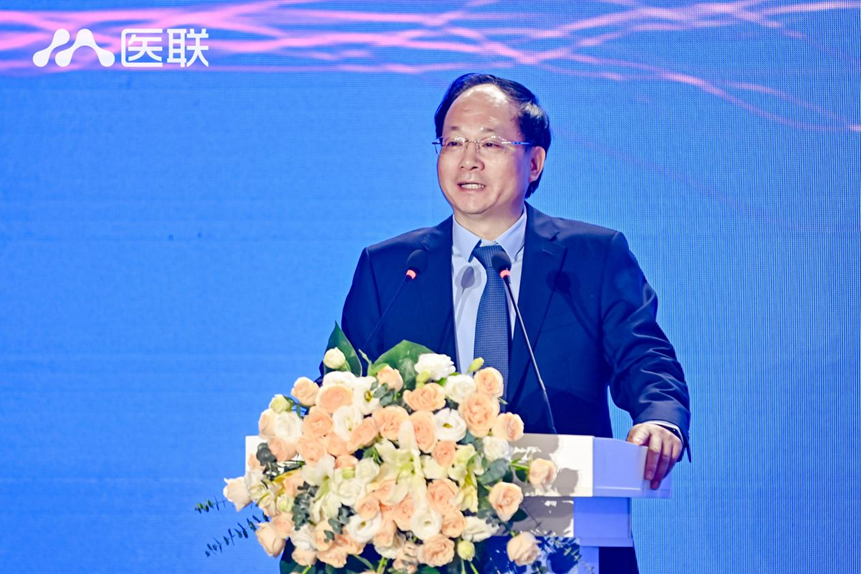
Professor Jin Zhendong, chairman designate of the Chinese Medical Association Digestive Endoscopy Branch and Executive director of the Gastroenterology Department of Shanghai Changhai Hospital, mentioned that a digestive endoscopy requires a lot of artificial intelligence technology, which has been used very much in medicine in recent years. In medicine, it is related to the imaging department: for example, in the radiology department, all the films are seen by the doctor, the original is the attending doctor, and finally the expert group takes pictures for artificial intelligence screening, our pathology department, dermatology and ophthalmology, and digestive endoscopy have been used very much in recent years. Today, our participation in this meeting together will certainly play a role in our country, whether it is a major like mine, or other majors can play a role in introducing jade. I also wish the next event can do better.
Evaluation of Large Model Capability Maturity in Healthcare Industry
Research project launch ceremony

(From left to right: Zhao Yisu, head of large Model Standard Project of China Medical Union Group, Li Shuangqing, Director of General Medicine Department of West China Hospital of Sichuan University, Liu Shixin, Director of Clinical Precision Radiotherapy Research Center of Malignant Tumor of Jilin Province Cancer Hospital, Zhao Cong, President of Chengdu High-tech Medical Association, Wang Ruiru, former deputy Director of Emergency Society of Chinese Medical Association, and Min, Deputy director of Cloud Computing and Big Data Institute of China Academy of Information and Communications Technology Dong)
At the meeting, the Institute of Cloud Computing and Big Data of the China Academy of Information and Communications Technology, the Internet Medical and Health Industry Alliance, and the Medical Union Group jointly launched the research project of "Evaluation of large model capability Maturity of the Medical and Health Industry". The evaluation series will focus on data engineering, model optimization, model delivery, scenario application, and service operation. Among them, the scene application part focuses on the grading evaluation of diagnosis and treatment ability. Through the dimensions of applicability, safety, effectiveness, fairness and standardization, a comprehensive evaluation system of large model capability maturity in line with the medical and health industry is formed, aiming to promote the standardization and standardization of large models in the medical and health industry, and improve the quality and application value of large models.
The Academic Committee on Artificial Intelligence was inaugurated

(From left to right: Liu Ming, Executive Director of the Department of Urology, Beijing Hospital; Erwin Nel, winner of the Nobel Prize in Physiology or Medicine; Wang Shirui, founder and CEO of Medical Union; Feng Xiaoyuan, Honorary Chairman of the Radiology Branch of Chinese Medical Association)
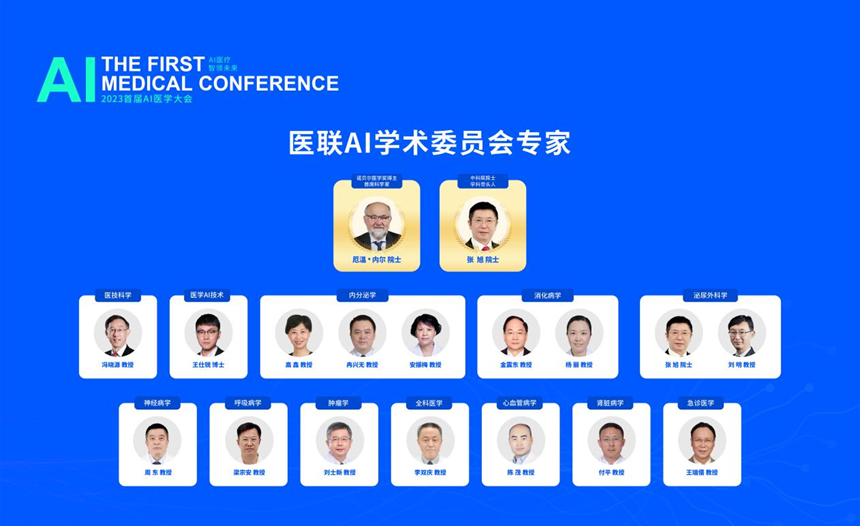
Artificial intelligence academic committee expert presentation
At the meeting, the artificial Intelligence Academic Committee was established, with German biophysicist Erwin Neher, winner of the Nobel Prize in Physiology or Medicine, as the chief scientist, and Zhang Xu, academician of the Chinese Academy of Sciences, as the discipline leader. The expert advisors also include top experts in the fields of endocrinology, digestion, urology, neurology, respiratory, oncology, cardiovascular, nephropathy, general practice and other diseases. Members of the Medical Association Artificial Intelligence Academic Committee, both top experts and scholars in the field of medicine, and leaders in the field of artificial intelligence. In the future, the medical Union will work with experts of the Artificial Intelligence Academic Committee to conduct in-depth cooperation on the model optimization, training strategies, evaluation and testing of medical large language models, so as to further promote the research and development and transformation of medical artificial intelligence related scientific and technological achievements, and bring more accurate, more reliable and more personalized services and support to doctors and patients. At the same time, the Medical Association Artificial Intelligence Academic Committee will also pay attention to ethics, privacy and other issues to ensure that the application of artificial intelligence technology in the medical field conforms to social ethics and laws and regulations.
Wang Shirui CEO project introduction

Wang Shirui, founder and CEO of Medical Union
In recent years, the accelerated accumulation of technical capabilities has organically combined with massive data resources, huge application demands, and an open market environment, forming a unique advantage in the development of artificial intelligence in China. From the four important links of disease prevention, diagnosis, treatment and rehabilitation, artificial intelligence has become an indispensable assistant in the medical community.
Academician Zhang Xu said in his speech: "In this era, the development of medical artificial intelligence has become an important engine of medical progress, through the continuous breakthrough and application of medical artificial intelligence technology, we will be able to provide patients with more efficient, safe and convenient medical services, so that more patients can enjoy the symbol of life and dignity."
Academic zone
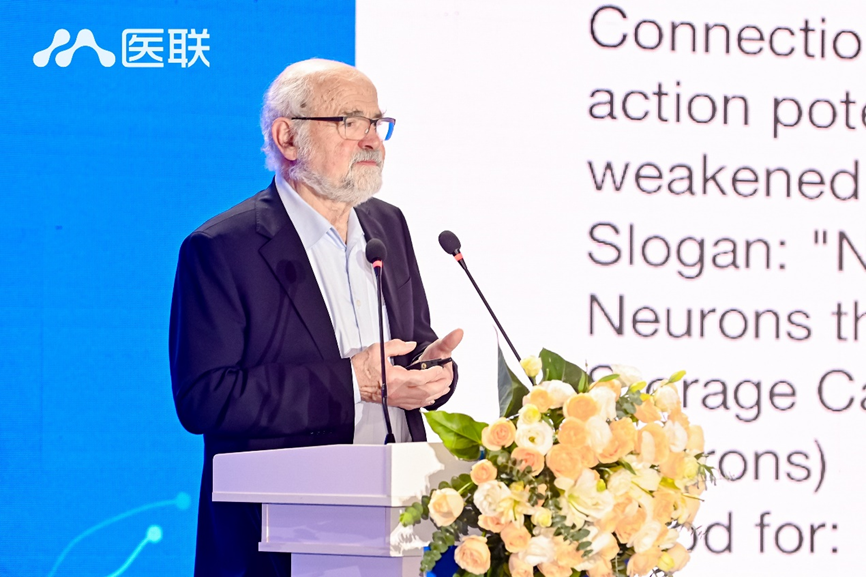
German biophysicist who won the Nobel Prize in Physiology or Medicine
Erwin Neher is chief scientist
Neuronal Signal Processing and Artificial Intelligence
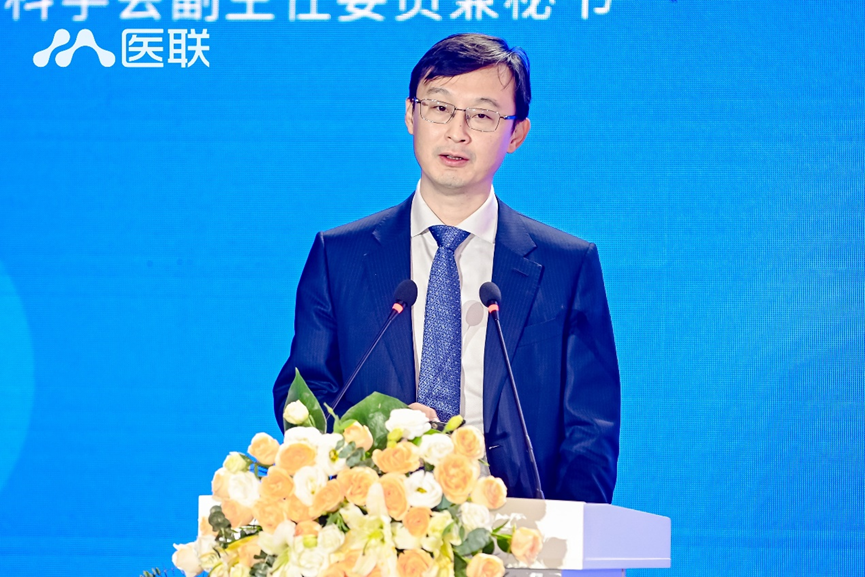
Beijing Hospital urology Department executive director Professor Liu Ming
Application of Artificial Intelligence Technology in the Field of Elderly Prostate Diseases
Our project is to develop a diagnosis and treatment assistance system for elderly people with urination problems. Today I am very happy that MedGPT already has a system based on general practice, and I hope we can cooperate in the future to do an assistive system for training elderly people to urinate in geriatric urology, which I think is very possible in the future.

Professor Min Dong, Deputy Director of the Institute of Cloud Computing and Big Data, China Academy of Information and Communications Technology
The trend and development of artificial intelligence are described from the aspects of auxiliary diagnosis, doctor's energy, changing service, management, teaching and research, drug supplier, etc.

Professor Li Shuangqing, Director of General Practice Center, West China Hospital, Sichuan University
Overview of Medical Artificial Intelligence & Evaluation of Diagnostic Accuracy of MedGPT
Introduction to the research on its Influence on the Accuracy of Human Doctors
In the very strange, very familiar, very mysterious scene of medical treatment, all kinds of technologies have been limited by the characteristics of medical treatment itself, making the application not so ideal. The enlightenment that artificial intelligence medical means can produce in other application scenarios in the early stage indicates that the application in the medical industry will bring very significant qualitative changes.
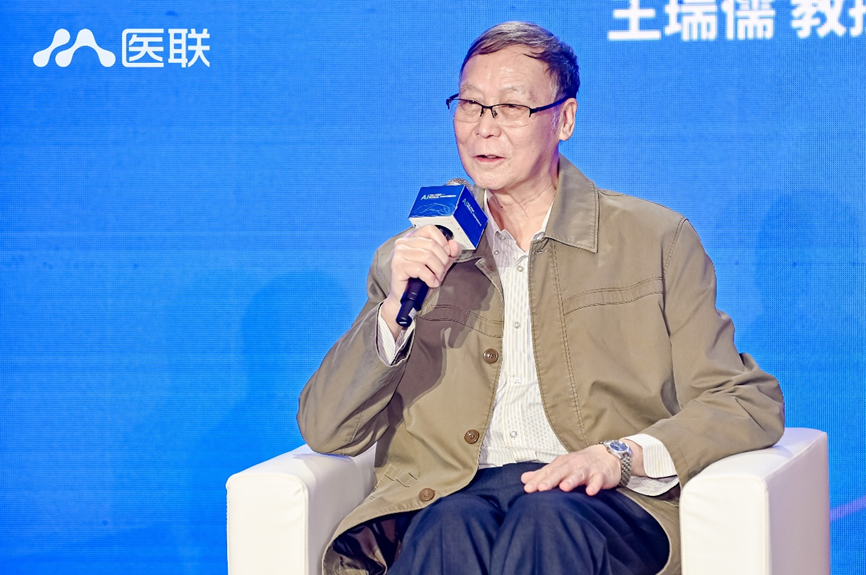
Professor Wang Ruiru, former deputy chairman of the Emergency Society of the Chinese Medical Association and policy expert of the National Medical Insurance Bureau
Application of Artificial Intelligence in Emergency Medicine
Artificial intelligence assists doctors in diagnosis, which can definitely improve efficiency, and this is our exploration. So in terms of the whole challenge, we have more to study: how can we use artificial intelligence more effectively?
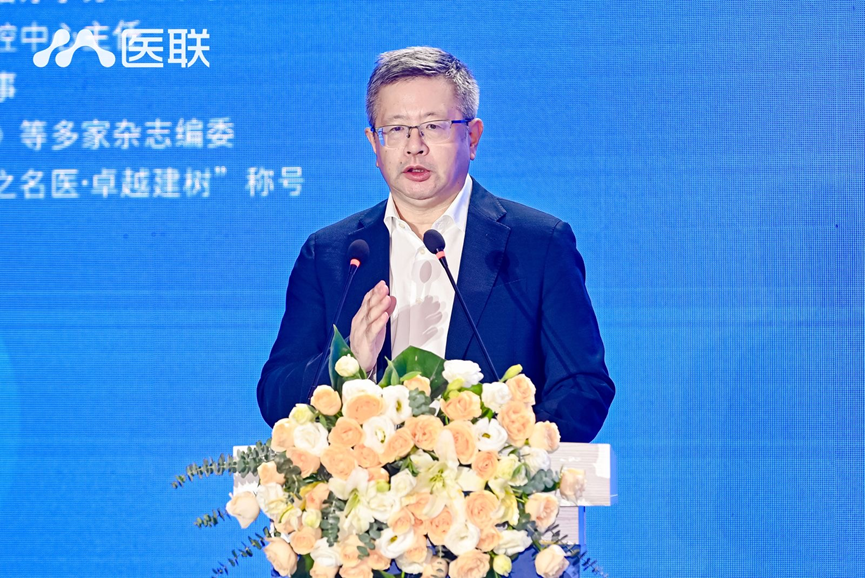
Director of Malignant Tumor Clinical precision Radiotherapy Research Center, Jilin Cancer Hospital, and deputy Chairman of the Radiation Oncology Therapeutics Branch of Chinese Medical Association
Professor Liu Shixin, Executive Director of the Chinese Society of Clinical Oncology (CSCO)
Implementation and Exploration of clinical trials of artificial Intelligence Technology Based on Cancer Big Data
Process monitoring, based on the experience of West China to do cancer patients in this aspect of the work, some studies of primary prevention. We can use this method to do a comparative verification to help our population intervention have a good reference and enlightening effect.
Standard first to help AI Medical Innovation Development - Roundtable Forum

The pictures from left to right are: Professor Wang Ruiru, Professor Erwin Nel, Dr. Wang Shirui, Professor Feng Xiaoyuan and Professor Ran Xingwu
As for the application prospect of generative artificial intelligence in medical scenarios, the guests all said that it was beyond doubt. First, generative artificial intelligence can change the information asymmetry between doctors and patients, so that patients can obtain more medical information and participate in treatment decisions more actively; Secondly, generative artificial intelligence can be applied to assisted diagnosis, personalized treatment, drug research and development, intelligent diagnosis and treatment assistants, etc., to improve medical efficiency and diagnosis accuracy. In addition, generative artificial intelligence can also accelerate the research and development and screening of new drugs, improve the efficiency and success rate of drug research and development.
The medical industry is special, in the process of promoting the development of artificial intelligence medical, how to ensure the safety and effectiveness of products, how to ensure the privacy of data and patients, how to ensure the control of large models, etc., need to be carefully studied and solved in the process of promoting the development of artificial intelligence medical.
It is very necessary to formulate and implement relevant standards in the medical field, which will improve the safety and effectiveness of medical work, promote the exchange and sharing of medical information, improve the standardization of medical services, and promote the innovation and development of the medical industry.
Appearance of the conference

















